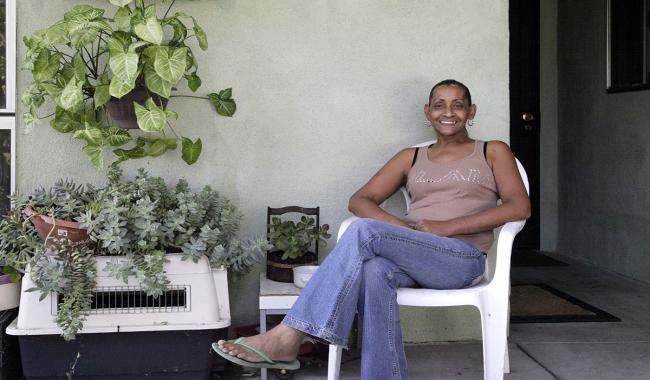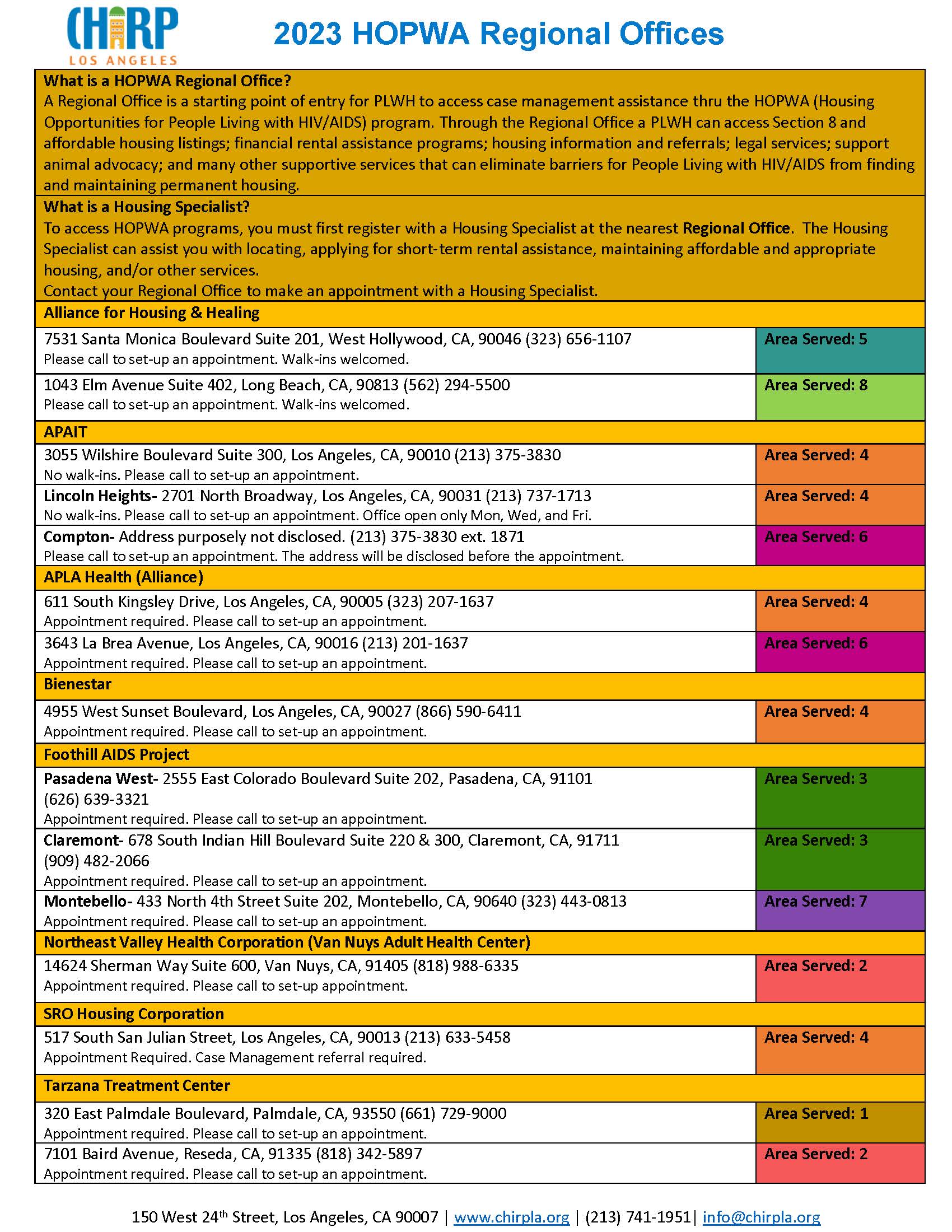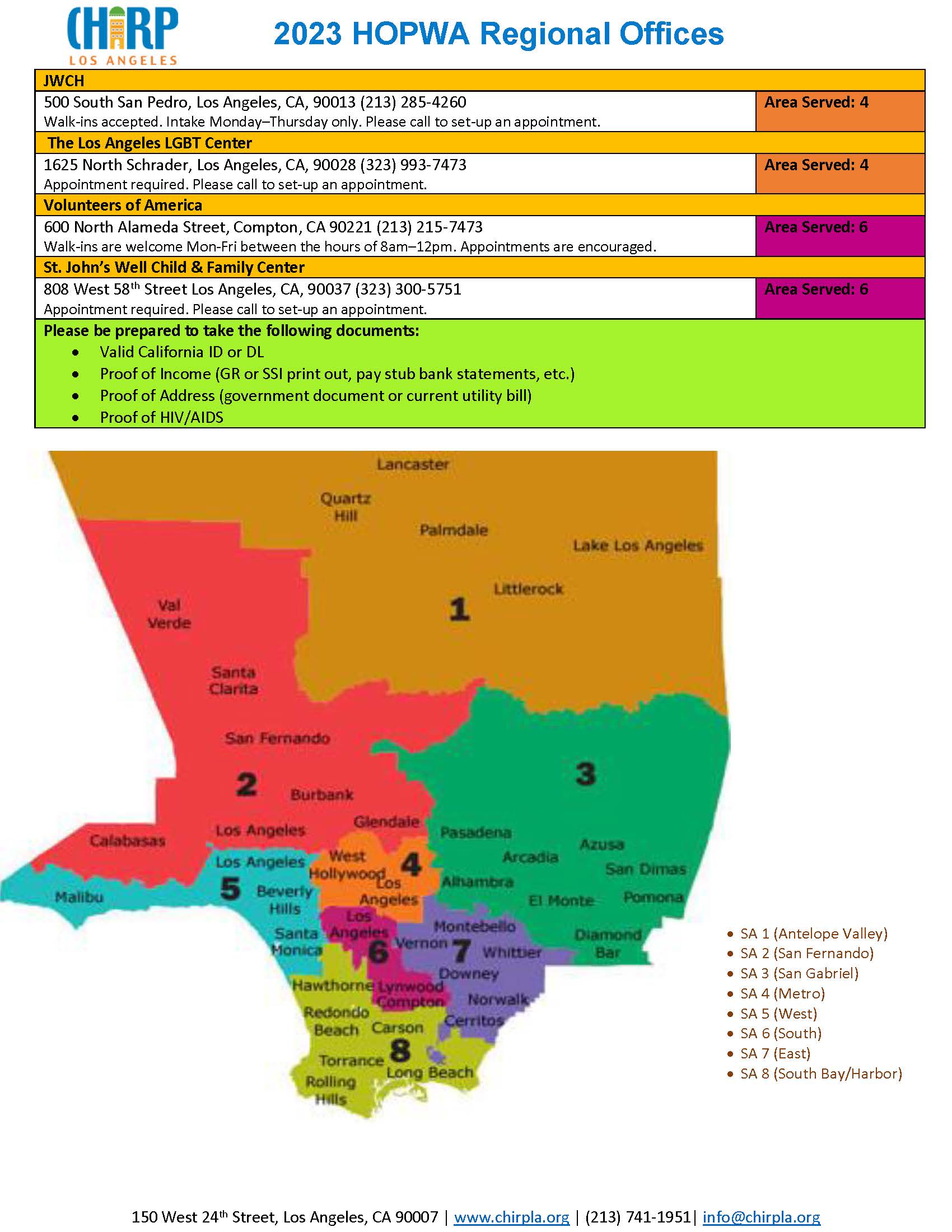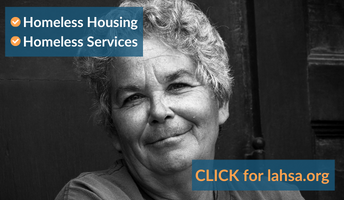
Housing Opportunities for Persons With AIDS
Housing Opportunities for Persons with HIV/AIDS, also known as HOPWA, is a federally-funded program that provides assistance with housing and supportive services for low-income persons living with HIV/AIDS and their families. The program goals are to maintain stable housing, reduce the risk of homelessness, and increase access to care. Services are provided countywide.
We partner with non-profit agencies and public housing authorities in Los Angeles County to provide direct housing and supportive services.
Eligibility
Minimum client eligibility requirements are listed below. Agency providers shall assess each client for minimum HOPWA eligibility and collect supporting documentation at intake.
1. Low-income, which is defined as 80% of the Area Medina Income (AMI) with at least half of the clients at or below 30% AMI for the Los Angeles-Long Beach Metro Area as published annually by HUD. Some programs have a minimum income level of 50% AMI or require the person to be homeless, at risk of homelessness, or unstably housed. For additional information or clarification on HOPWA Program income eligibility requirements please contact CHIRP LA via their website at www.chirpla.org or by calling 1-877-7-CHIRPLA.
2. Diagnosis of HIV/AIDS. Acceptable medical documentation of HIV status includes:
- A statement of HIV/AIDS verification signed by a licensed physician or certified health worker.
- Social Security Administration records indicating the nature of a disability determination.
- Other relevant federal program records verifying HIV status.
Program Information
HOPWA PROGRAM SERVICES
The following program services are provided by non-profit agencies and public housing authorities.
Housing Subsidy Assistance
1. Short-Term Rent, Mortgage, and Utility (STRMU) program: Provides eligible clients with short term financial assistance to maintain their permanent housing due to a financial crisis, medical condition or loss of income. Eligible households must live in non-subsidized housing and have a source of income. Assistance is available for up to 21 weeks in a 52-week period.
2. Permanent Housing Placement (PHP) grant: Provides move-in grants for security deposit, first month’s rent and utility turn-on, and other related moving costs. Available once every 3 years; must be moving into permanent housing.
3. Crisis Housing: Emergency and Transitional housing for clients who are homeless or at-risk of homelessness. Supportive services are also provided.
4. Tenant-Based Rental Assistance (TBRA): Provides up to 12 months of rental assistance for very-low income and homeless households with HIV/AIDS. TBRA operates similarly to the Housing Choice Voucher (HCV) program (Section 8), and is offered by four public housing authorities: City of Los Angeles, County of Los Angeles, City of Pasadena, and City of Long Beach. After 12 months, eligible clients can transition to the regular (non-HOPWA funded) HCV program if they are still eligible. Participants are also connected to housing specialists and supportive services. NOTE: TBRA assistance is limited. Priority is given to persons who are homeless, at-risk of homelessness, or unstably housed.
***THE FOLLOWING PROGRAMS (#5 & #6) HAVE EXTREMELY LIMITED VACANCIES EACH YEAR***
5. Project-Based Rental Assistance (PBRA): Provides rental assistance directly to units in affordable housing developments. The subsidy is attached to the unit which must be occupied by a low-income tenant with HIV/AIDS. The PBRA program is administered by the Housing Authority of the City of Los Angeles at housing developments owned and managed by non-profit housing developers.
6. Scattered-Site Master Leasing: Rental units are master leased by 2 HOPWA contractors from property owners and subleased to eligible HOPWA clients as permanent housing. Contractors determine appropriate subtenant rent amounts and subsidies in compliance with HOPWA guidelines, and ensure that the units meet Housing Quality Standards (HQS).
Supportive Services. Supportive Services are equally important in helping clients and their families maintain their housing or locate and acquire housing. Supportive services include:
- Housing Specialists who help clients locate and/or maintain appropriate and affordable housing.
- Residential Service Coordinators who provide supportive services assistance to clients who live in affordable housing developments that house persons with HIV/AIDS.
- Benefits counseling
- Legal services and training in housing laws
- Animal support and advocacy for clients who need assistance in caring for their pets and support animals.
Housing Information and Referral. Available housing and supportive service referrals are listed on a user-friendly website at www.chirpla.org or by calling 1-877-7-CHIRPLA. The website lists emergency, transitional housing, affordable and market rate housing and other housing resources. The site can be searched by area, zip code, and type of housing.









